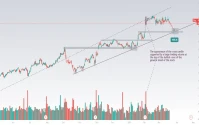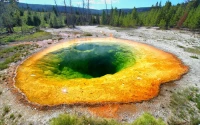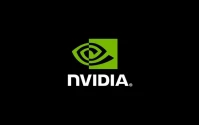The Cookiepocalypse is Nigh—Or is it the Dawn of True Privacy?
Okay, folks, let's talk about cookies. Not the delicious kind, unfortunately, but the digital kind that track our every move online. You've probably seen those annoying pop-ups on every website asking for your consent, and you might be wondering, "What's the big deal?" Well, the big deal is that the internet is finally waking up and realizing that maybe, just maybe, we deserve a little more control over our data.
A Crumbling Cookie Kingdom?
For years, cookies have been the backbone of online advertising. They allow companies to target us with personalized ads, track our browsing habits, and build detailed profiles of our interests. It's been the Wild West out there, with data flowing freely and our privacy often taking a backseat. But now, we're seeing a shift. New regulations and growing consumer awareness are forcing companies to rethink their reliance on cookies. We're talking about a potential Cookiepocalypse, a dramatic upheaval in how the internet works.
Think of it like this: imagine you’re walking around a city where every store owner is secretly following you, writing down everything you look at, and then using that information to bombard you with personalized flyers. Annoying, right? That's essentially what cookies have been doing online. But what if, instead, you had a personal digital assistant that let you decide what information to share and what to keep private? That's the promise of a post-cookie world. The rise of privacy-focused browsers, decentralized social media, and secure messaging apps show that there is a HUGE appetite for something different.
But what does this actually mean for us? Well, for starters, it means we might see fewer of those creepy ads that seem to know exactly what we were just searching for. It also means that companies will need to find new ways to understand our needs and preferences, perhaps by focusing on building genuine relationships with their customers rather than relying on invasive tracking. Is this the end of personalized advertising? I don’t think so. It's a move to ethical, permission-based marketing, and that’s an amazing thing.

Now, I know what some of you are thinking: "This sounds great, but is it really possible? Can we really break free from the cookie monster?" And that's a fair question. The truth is, the transition won't be easy. Many companies are heavily invested in the current system, and they won't give it up without a fight. But I'm optimistic. I see a groundswell of support for privacy, not just from consumers but also from developers and policymakers.
This isn't just about blocking ads, it's about reclaiming our digital sovereignty. It's about creating an internet where we are in control of our data, where we can choose what to share and what to keep private. It's about building a future where technology empowers us rather than exploits us. The tech world is responding too. Apple’s moves to limit tracking on iOS, for example, are a shot across the bow for the old cookie-based system. How will companies adapt to this new reality? Will they embrace privacy-first approaches, or will they try to find sneaky ways around the new rules? Only time will tell.
And here's something else to consider: what happens to all the data that's already been collected? Will it be used responsibly, or will it continue to haunt us in the form of targeted ads and personalized pricing? We need to have a serious conversation about data ethics and data governance to ensure that our privacy is protected in the long term.
A New Dawn of Digital Empowerment
When I first started researching this, I honestly felt a surge of hope. This isn't just about tweaking a few settings or installing a new browser extension. This is about a fundamental shift in the balance of power online. It's about creating a more equitable and sustainable digital ecosystem, one where privacy is not a luxury but a fundamental right. This uses complicated concepts like differential privacy—in simpler terms, it means anonymizing data so it can be used for analysis without revealing individual identities. The speed of this shift is just staggering—it means the gap between today and tomorrow is closing faster than we can even comprehend. According to Stocks notch worst day in over a month as tech sell-off intensifies, the tech sector is already feeling the pressure.
The Future is in Our Hands
The Cookiepocalypse might sound scary, but it's actually an opportunity. An opportunity to build a better internet, one that respects our privacy and empowers us to control our digital lives. It won't be easy, but with awareness, action, and a little bit of optimism, we can create a future where privacy and innovation can thrive side by side. I am excited to see what happens next, and I hope you are too.










